Investigation on the Culture of Giving
This is not a “mise en abime”. Or maybe it is? When the time came to tackle our fundraising campaign for the next season, we resumed a discussion about the funding of culture that seems to have no end. This conversation resulted in us questioning the whole principle of philanthropy, something necessary for our survival.
We therefore decided to reflect on this topic in the same way we do with theatre: by documenting the process that led us to raise the question of whether philanthropy is the only possible solution for the survival of culture, and of theatre in particular.
More dramatically, the question is: do we have to beg for money to survive? And more importantly, as individuals, why do we give to a cause, to an organization?
In a series of articles featuring Porte Parole’s creators, donors, and researchers who study the sociological and psychological mechanisms of giving, we humbly explore the extent and limits of this funding method, its benefits, and its alternatives.
As always, we are curious to hear your thoughts on these big questions. Take part in our survey by clicking on the “The Floor Is Yours” button below.
Part 1 – Full Transparency
The act of giving is one of the main pillars of our society, but how can we create a philanthropic momentum within the population? And when money starts coming in, how does an organization maintains its independent editorial and creative principles, whilst also giving back to those who support it? Lots of big questions here…
Part 2 – Partly Cloudy With Unstable Generosity Index
While preparing for the 2022 fundraising campaign, the Porte Parole team raised many questions about giving, as well as the concept of philanthropy more generally. We surveyed you on a few of them, here’s what you came up with! Daniel H. Lanteigne, chair of the Quebec chapter of the AFP, analyzes the results with us.
Part 3 – Quebec Philanthropy Today: A Snapshot
Porte Parole talks with Caroline Bergeron who studies the ecosystem of philanthropy at Université de Montréal. Areas considered regarding this means of financing include its foundations, limits and benefits, but also its alternatives.
Did you enjoy this investigation?
We also enjoyed investigating this! And it’s not over yet, more content and food for thought will be coming soon.
If you would like to support Porte Parole so that we can continue to showcase the results of investigations like this one (on stage, in podcasts or on our website), you can do so by clicking here.



